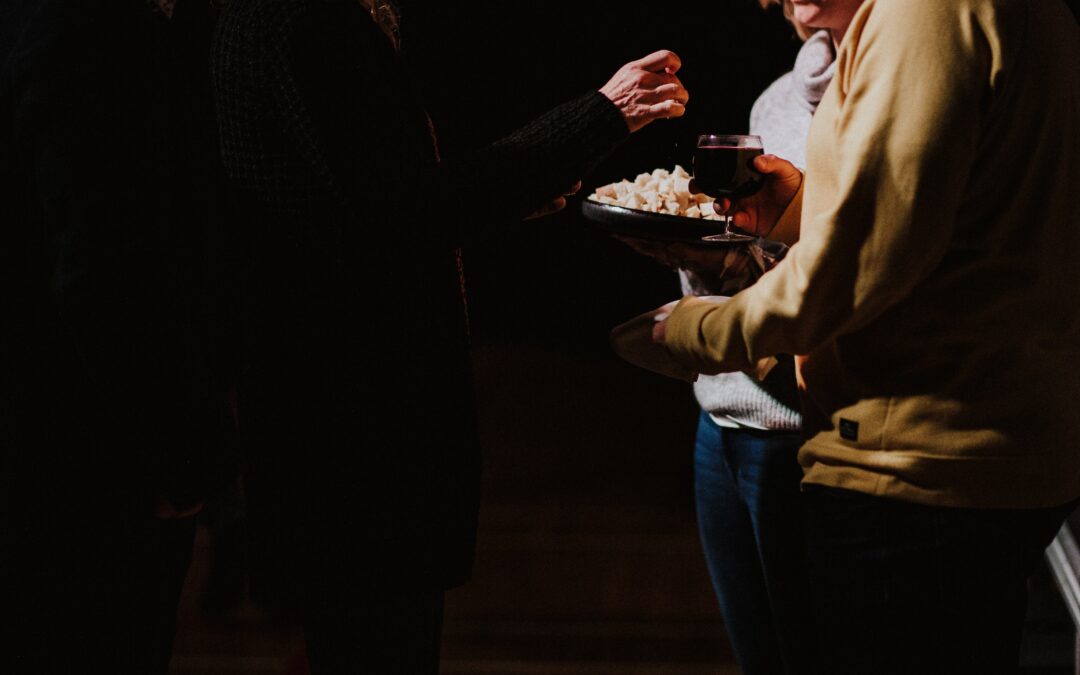I am a bleeding heart who always wants to think the best of everyone. I am always interested in giving second chances and allowing others the “benefit of the doubt.”
But it isn’t just my personal constitution that makes me this way. I am a United Methodist. A thorough-going, card-carrying Wesleyan. Like John Wesley, I believe that the Christian faith is built upon the foundation of God’s grace. Wesley spoke and wrote often of grace. Grace is the cornerstone on which Wesleyan theology and all of Methodism is built.
Recently I have spent a lot of time thinking about the grace of God. It comes naturally to me.
Grace is not merely an abstract concept with no connection to reality, however. In his infinite wisdom (and dare I say, grace?) God has given to humanity certain ‘means of grace,’ or sacraments. Different traditions and denominations within the Christian church hold to the validity of different numbers of sacraments. For our purposes, we Methodists practice only two; and these are important because they were specifically commanded by Jesus himself.
There is one other thing to keep in mind where the sacraments are concerned. I believe deeply that what we (humans) do, is much less important than what God does. That is to say, God is real and interested in the lives of humans. He is active in our worship. He is not far away and detached from us. He is present, real and involved. When we receive a sacrament from God, we are receiving his grace.
Baptism
When thinking about baptism it is very easy to focus on the symbolic aspects of the act itself. When we are immersed we are re-enacting the death, burial, and resurrection of Jesus to symbolize our resurrection in Christ. The liturgy that we recite is filled with language (definitely symbolic) from the Scriptures about crossing seas, the cleansing of floods and the belly of a fish. There are references to the sprinkling of the blood of sacrifice. Symbolism abounds.
But it is important for us to remember (for baptism and communion) that what we do is not only symbolic. God is real and he is active and involved in these events. When we participate in baptism we receive the actual grace of God. He is pouring out his love on all who participate.
And since we believe that what God does is more important than what humans do, we can in confidence affirm that the words that are spoken during baptism, and the ways that the water is used (including the amount of water), are much less significant than the heart of the believer. It is the heart of the Christian and the presence of the Spirit of God that makes baptism a sacrament. Ultimately, obedience to the command of Christ is the only thing that matters.
Holy Communion
As in baptism, it is crucial that we understand that Holy Communion is not only a symbolic representation of the presence of Christ. In Communion, we celebrate the very presence of Christ in our midst. Not his symbolic presence. Communion is not only a commemoration of Jesus’ sacrifice. In Holy Communion, we celebrate the actual presence of Christ in our lives.
Again, the way we celebrate is less important than the actual act of celebrating. I am not concerned with how you serve the bread and wine. I am not even worried about whether it is unleavened bread, a single loaf, tiny wafers, juice or wine. Those things may seem significant to us, but they are much less so than the presence of Christ. Jesus can reveal himself in many different forms of communion. The words that are spoken are unimportant as well (at least in the big picture).
But get this: God is present. A miracle of transformation takes place as we receive (eat and drink) the bread and cup. We don’t only get the physical sensation of taste and smell, chewing and swallowing, we get the actual presence if the literal person of Christ. He comes in and dwells with us and in us.
There is one last thing that I want to cover. Jesus invites everyone to his table. It is not an exclusive meal reserved only for the select few. Jesus invites everyone to his feast. We are all welcome. We do not need to meet special membership requirements. We just have to answer the invitation to come and dine. And if the table is open for all, then Communion must be an evangelistic event. Everyone can come. And we should welcome them all. Just like Jesus.

